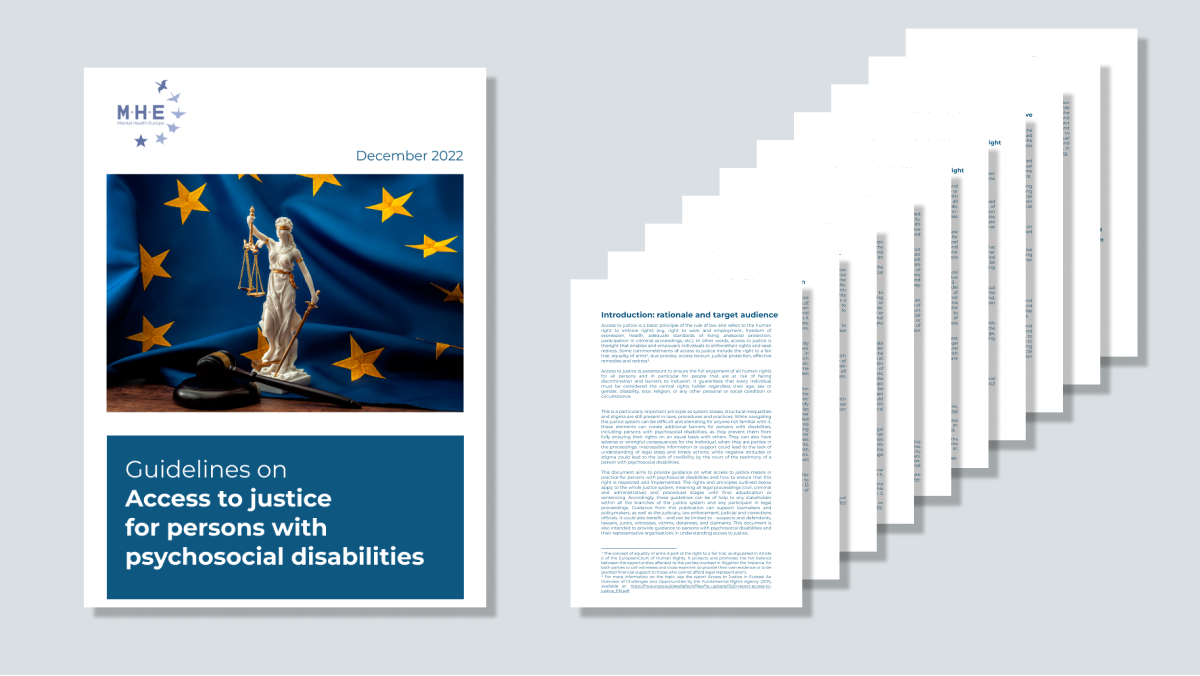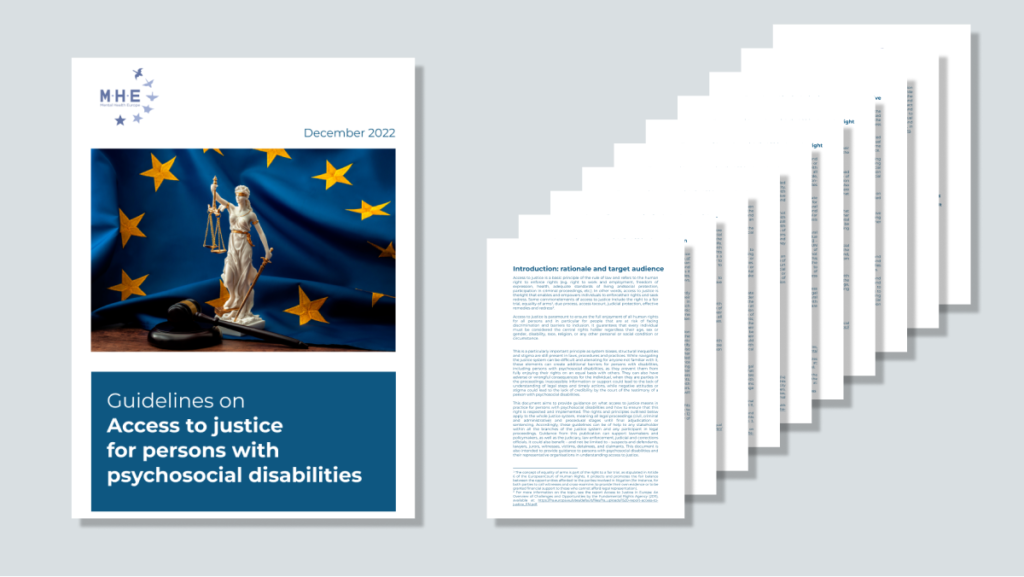MHE releases Guidelines on access to justice for persons with psychosocial disabilities


‘Guidelines on access to justice for persons with psychosocial disabilities’
Introduction: rationale and target audience
Access to justice is a basic principle of the rule of law and refers to the human right to enforce rights (e.g. right to work and employment, freedom of expression, health, adequate standards of living and social protection, participation in criminal proceedings, etc.). In other words, access to justice is the right that enables and empowers individuals to enforce their rights and seek redress. Some common elements of access to justice include the right to a fair trial, equality of arms,1 due process, access to court, judicial protection, effective remedies and redress.
Access to justice is paramount to ensure the full enjoyment of all human rights for all persons and in particular for people that are at risk of facing discrimination and barriers to inclusion. It guarantees that every individual must be considered the central rights holder regardless their age, sex or gender, disability, race, religion, or any other personal or social condition or circumstance.
This is a particularly important principle as system biases, structural inequalities and stigma are still present in laws, procedures and practices. While navigating the justice system can be difficult and alienating for anyone not familiar with it, these elements can create additional barriers for persons with disabilities, including persons with psychosocial disabilities, as they prevent them from fully enjoying their rights on an equal basis with others. They can also have adverse or wrongful consequences for the individual, when they are parties in the proceedings: inaccessible information or support could lead to the lack of understanding of legal steps and timely actions, while negative attitudes or stigma could lead to the lack of credibility by the court of the testimony of a person with psychosocial disabilities.
This document aims to provide guidance on what access to justice means in practice for persons with psychosocial disabilities and how to ensure that this right is respected and implemented. The rights and principles outlined below apply to the whole justice system, meaning all legal proceedings (civil, criminal and administrative) and procedural stages until final adjudication or sentencing. Accordingly, these guidelines can be of help to any stakeholder within all the branches of the justice system and any participant in legal proceedings.
Guidance from this publication can support lawmakers and policymakers, as well as the judiciary, law enforcement, judicial and corrections officials. It could also benefit – and not be limited to – suspects and defendants, lawyers, jurors, witnesses, victims, detainees, and claimants. This document is also intended to provide guidance to persons with psychosocial disabilities and their representative organisations in understanding access to justice.
Stay connected
Get our latest news, personal stories, research articles, and job opportunities.

